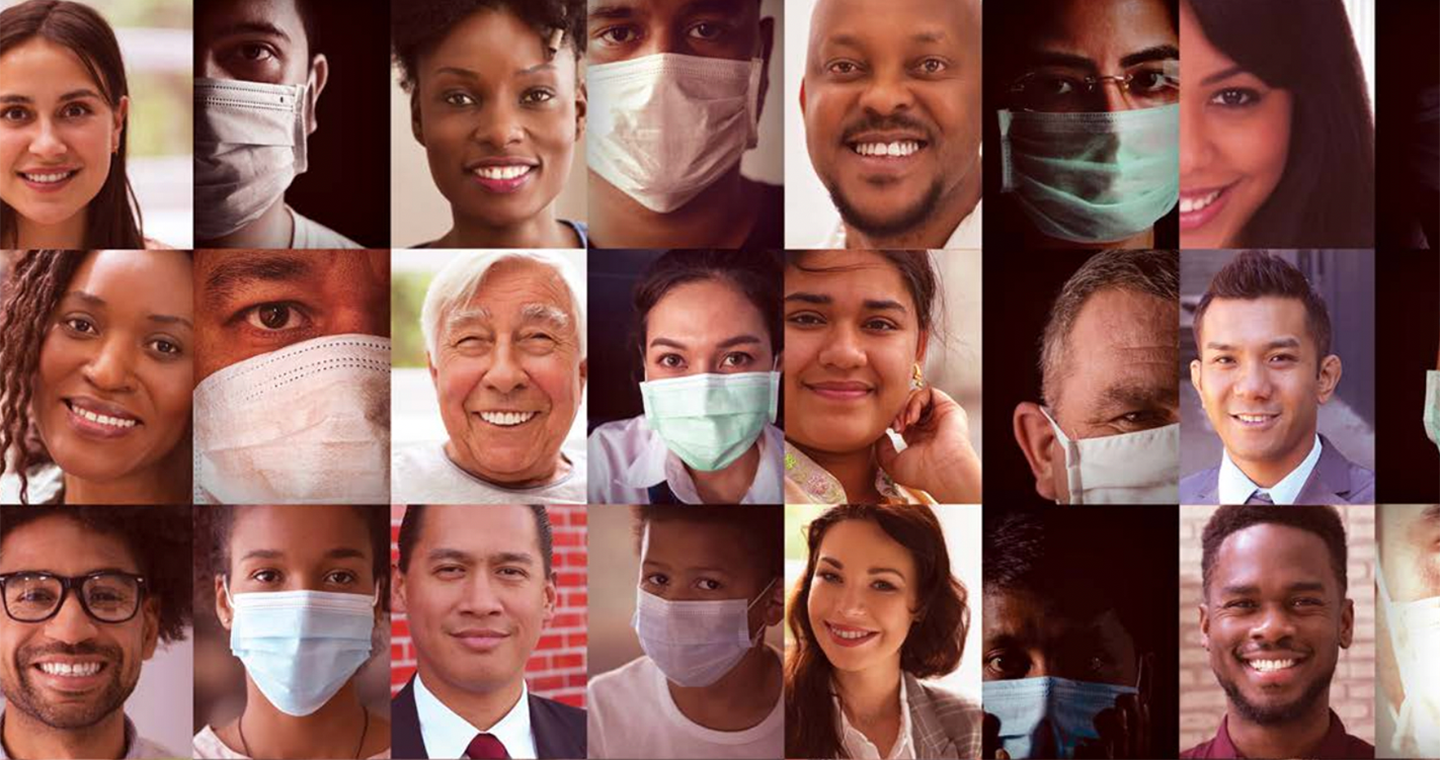We Need Healing. We Need Relief.
COVID-19 has and continues to unearth inequalities that people of color encounter in almost every institution in our country. To capture an accurate image of the pandemic’s effect and help elected leaders draft data-informed legislation, we launched the COVID-19 Needs Assessment.
Inadequate systems of reporting, data collection methods, and data analytic approaches have led to significant gaps, made some things invisible, and presented inaccurate portrayals of the lived experiences and impact of COVID-19 on people and communities of color. The Needs Assessment was designed to fill some of the existing COVID-19 data gaps connected to the following:
- Missing or small samples of racial/ethnic and other demographic groups;
- The lack of disaggregated federal, state, and local race-specific data; and
- The absence of informed, nuanced community insights and understanding of COVID-19’s differential impact within and across racial/ethnic groups.
COVID-19 Communities of Color Needs Assessment (PDF)
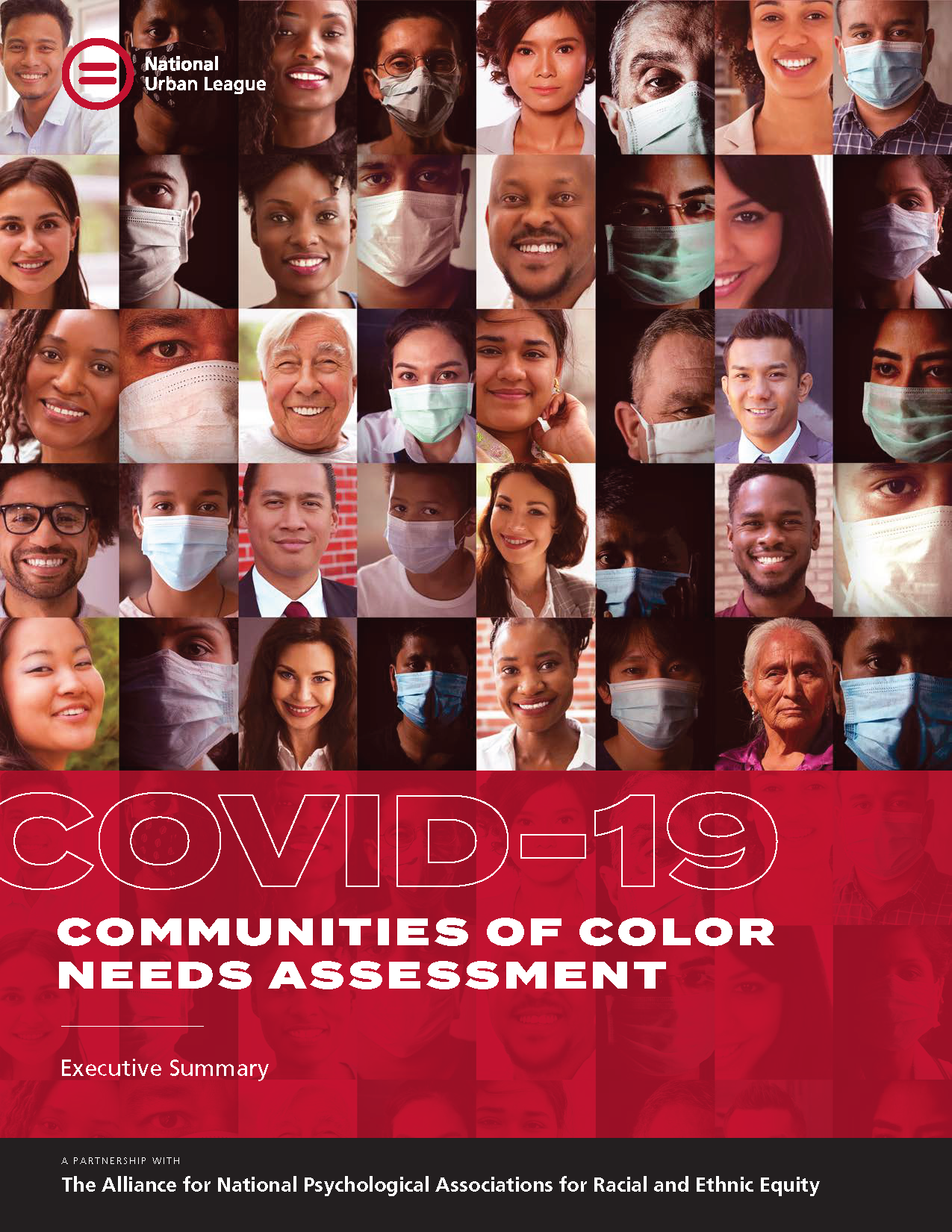 |
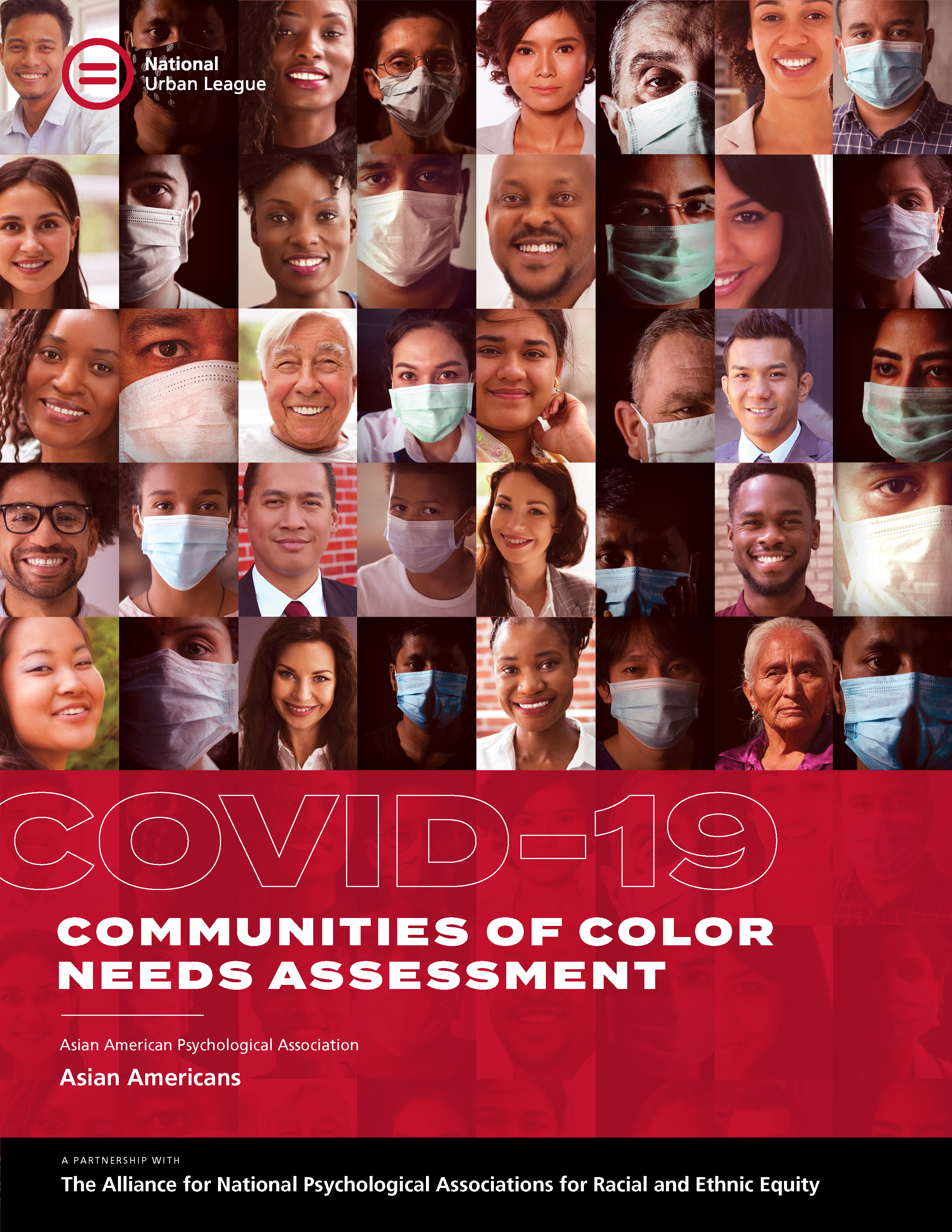 |
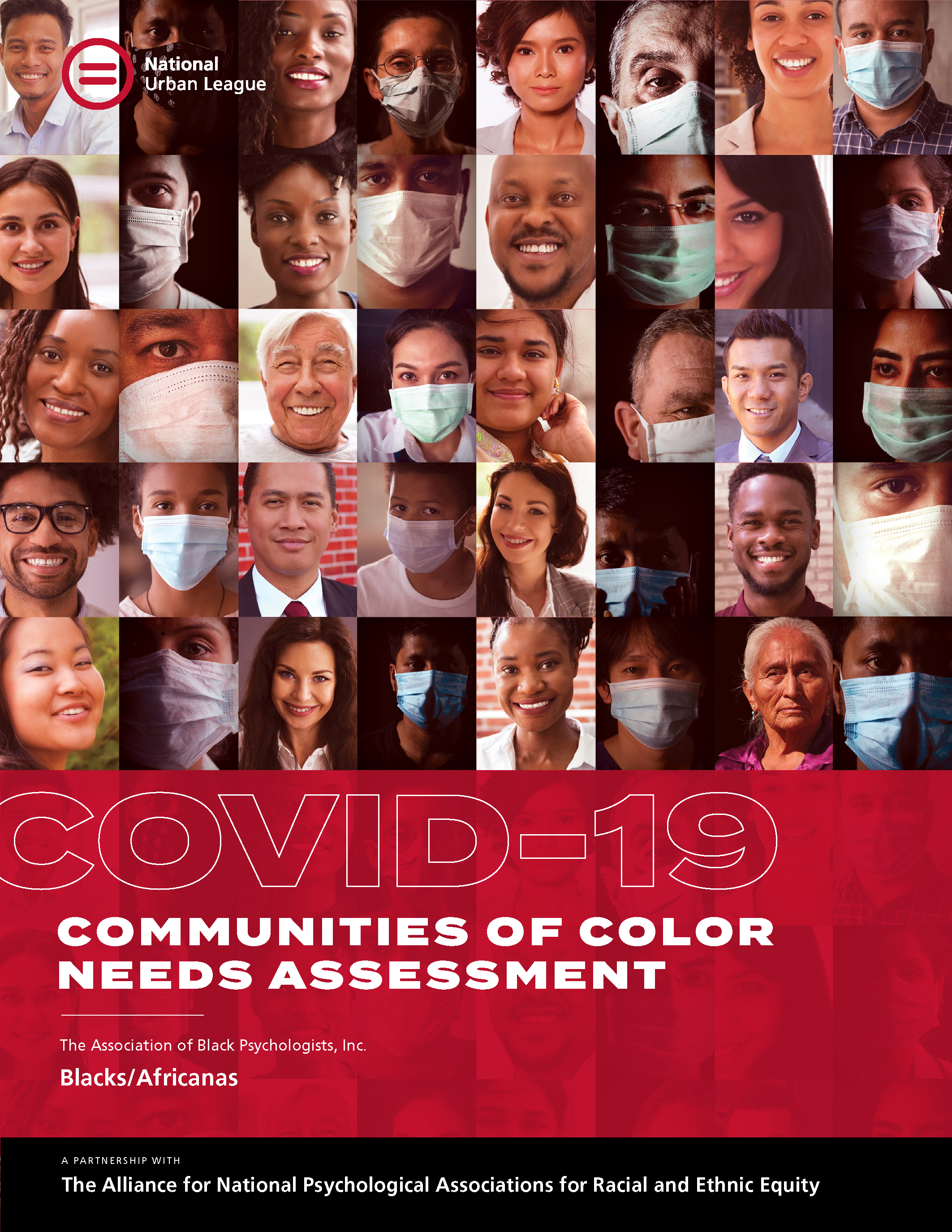 |
| Executive Summary | Blacks/Africans | |
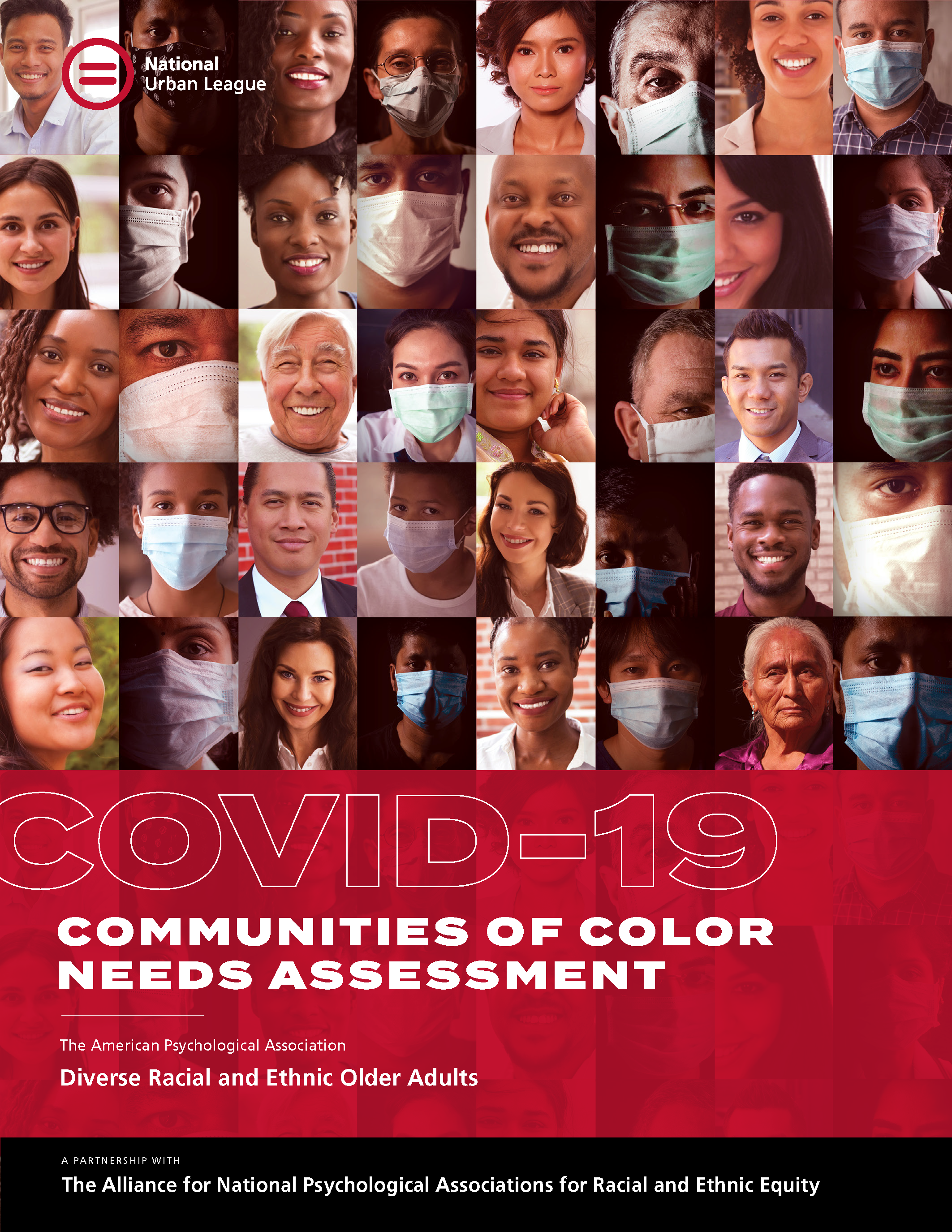 |
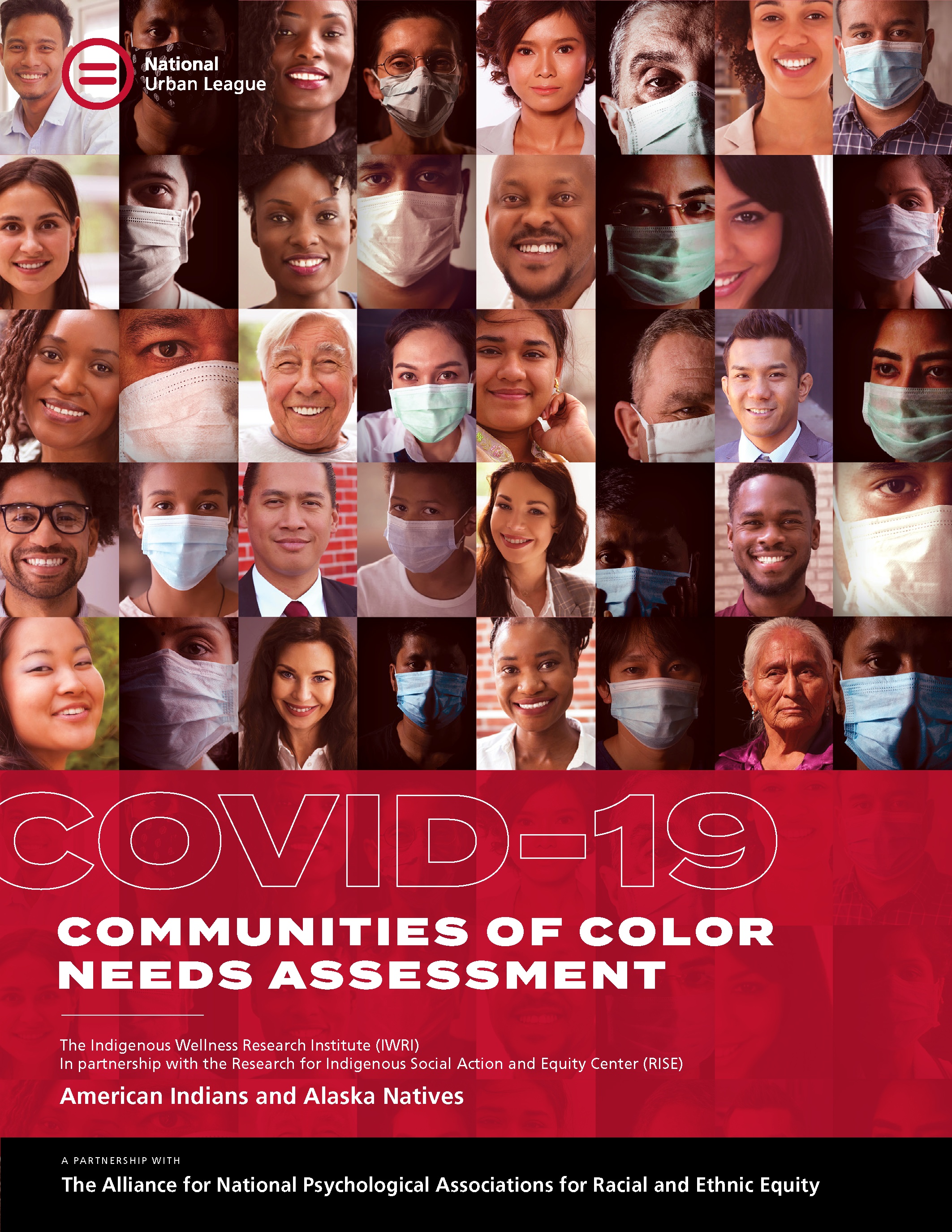 |
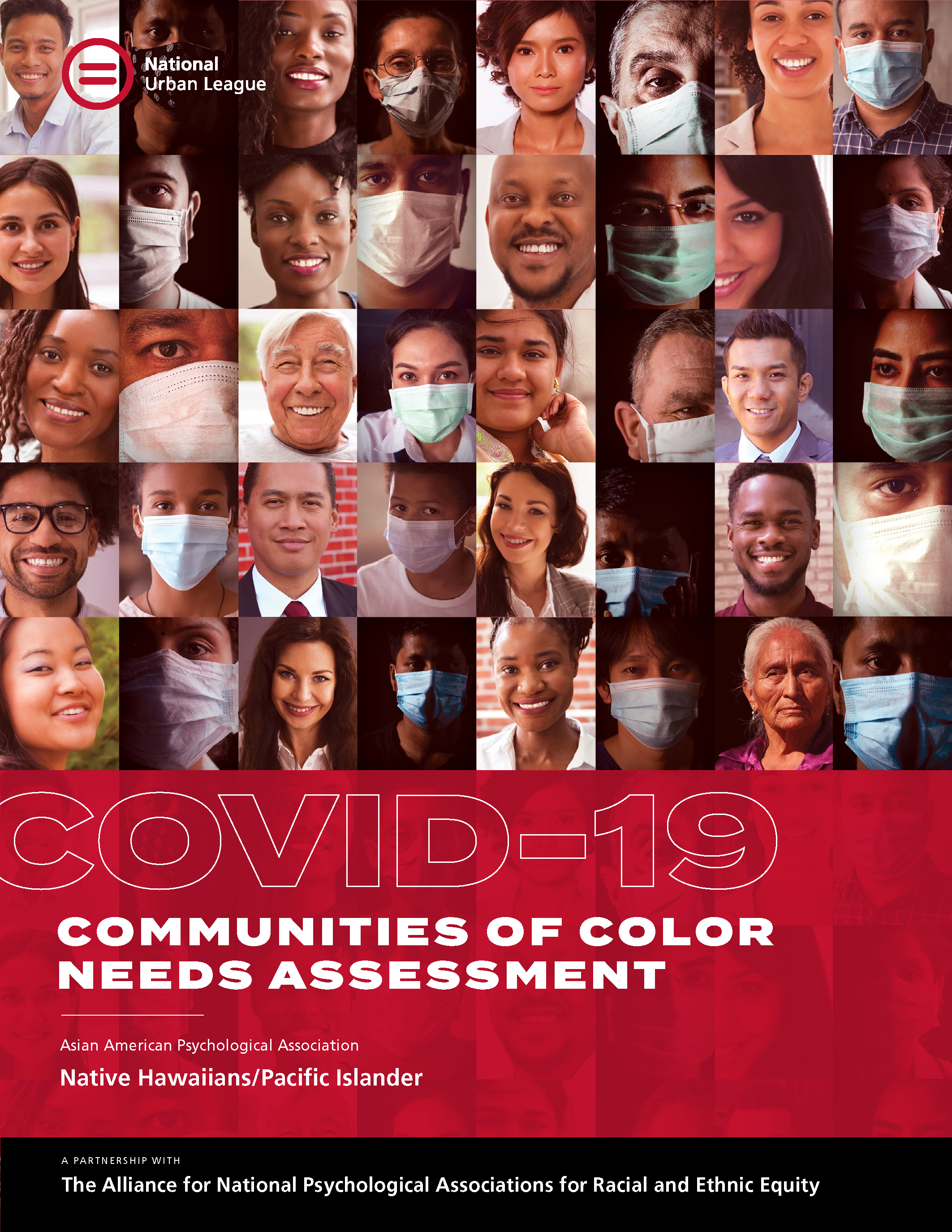 |
| Diverse Racial & Ethnic Adults | American Indians & Alaska Natives | Native Hawaiians/Pacific Islanders |
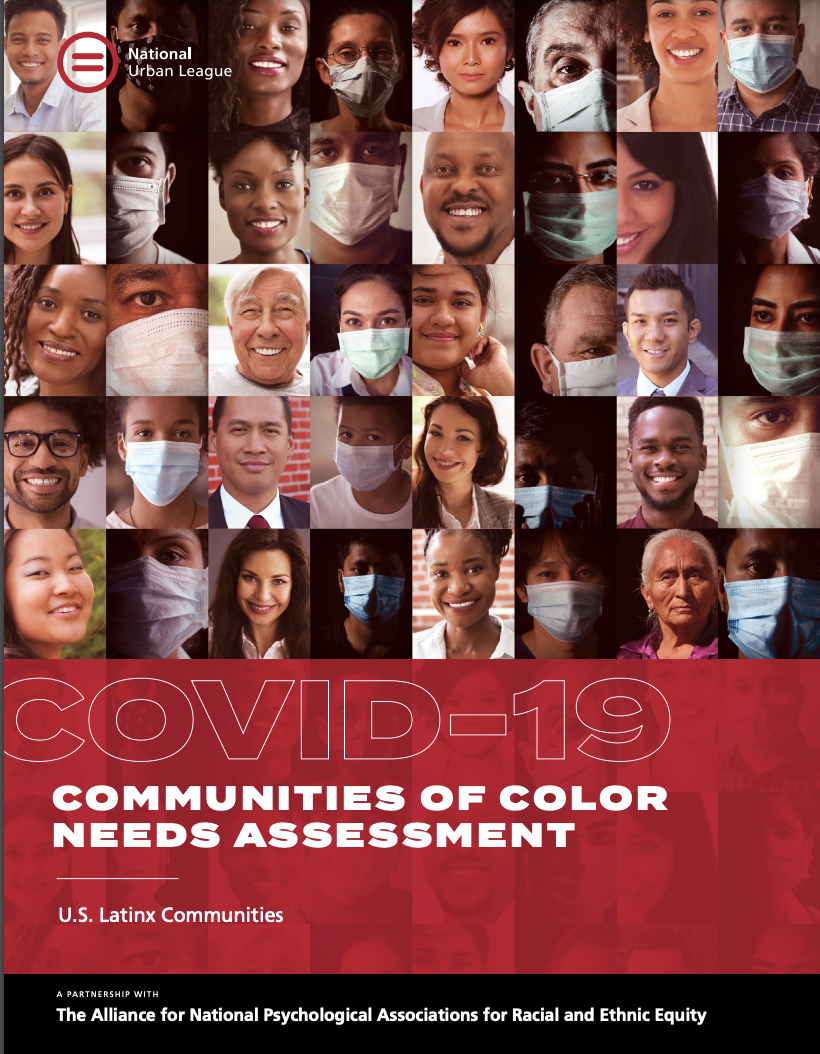 |
||
| Latinx Communities |
Letter from Our President Marc H. Morial
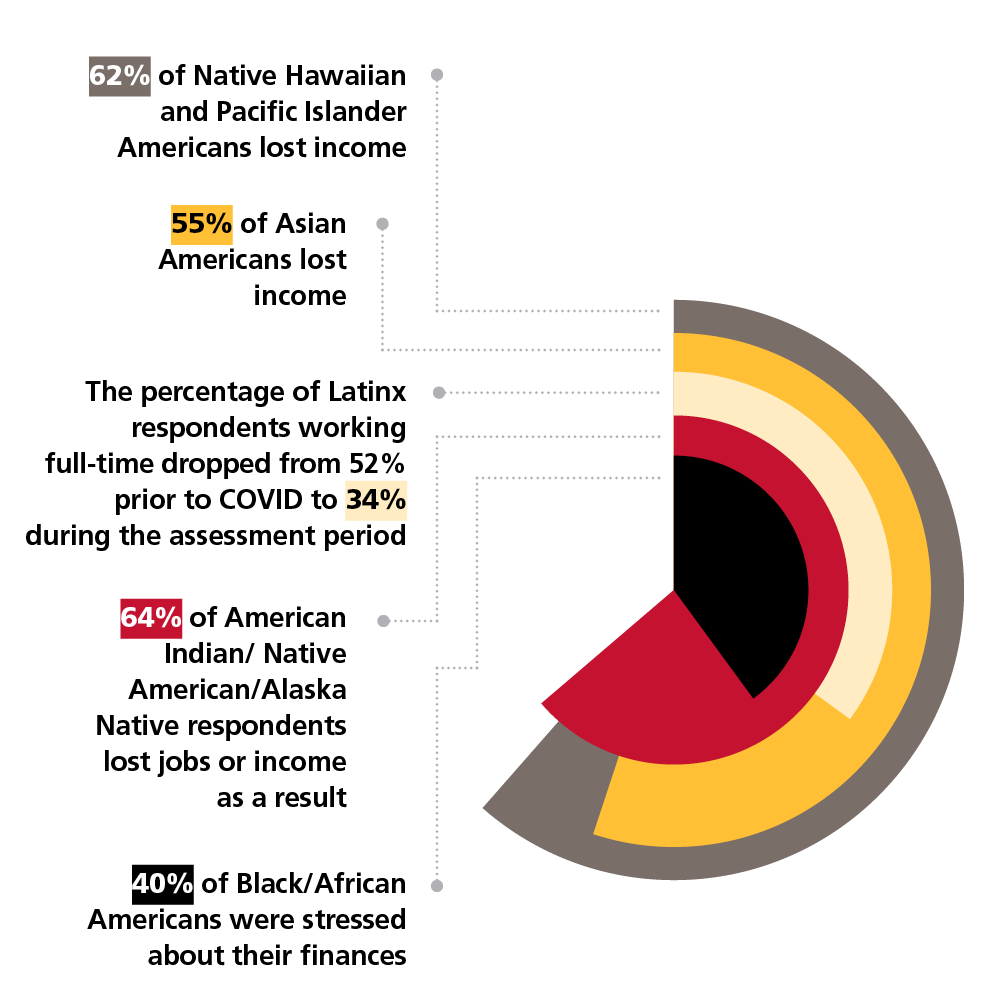
To resolve the problem of unequal treatment and equity, we need research that provides granular answers to big questions about the impact of COVID across Black/African American, Latinx, American Indian/Native American/Alaska Native, Asian American, and Native Hawaiian/Pacific Islander communities. That’s why the National Urban League enthusiastically embraced the opportunity to help manage this COVID-19 Needs Assessment to help grassroots leaders, funders, and policymakers better understand the nuances of how communities of color and other target audiences were impacted beyond the daily death toll numbers.
COVID-19 did not create the inequities, but it brought many into clearer view. The population-specific data from this research paints a nuanced picture that will help funders and policymakers distinguish the essential and empirically validated facts from stereotypes and misinformation about each group, assess whether each racial group has the requisite access to social, economic, and health resources, and to evaluate the data needs of each group.
The current pandemic, for example, has exposed an urgent need for improving pandemic preparedness and redressing the impact of the social determinants of health on communities of color. Social distancing and other lockdown measures were necessary to curb the spread of the virus but often were devised hastily and implemented without much knowledge into the impact on individual and community mental and physical health.
A hearty thank you to all of our partners in the Alliance and the individual researchers who devoted so much time and energy to this effort that hews closely to our mission of providing economic empowerment to African Americans and other underserved populations.
About the Alliance
The Alliance of National Psychological Associations for Racial and Ethnic Equity is a partnership of national psychological associations and research institutes, including The Asian American Psychological Association, The Association of Black Psychologists, The Indigenous Wellness Research Institute in partnership with the Research for Indigenous Social Action and Equity Center, The National Latinx Psychological Association, and The American Psychological Association.
Led by Principal Investigator Cheryl Grills, Ph.D., the Alliance assembled a multi-ethnic and interdisciplinary research team that included community-based organizations and subject matter experts in public health, economics, education, health policy, epidemiology, social policy, and polling.
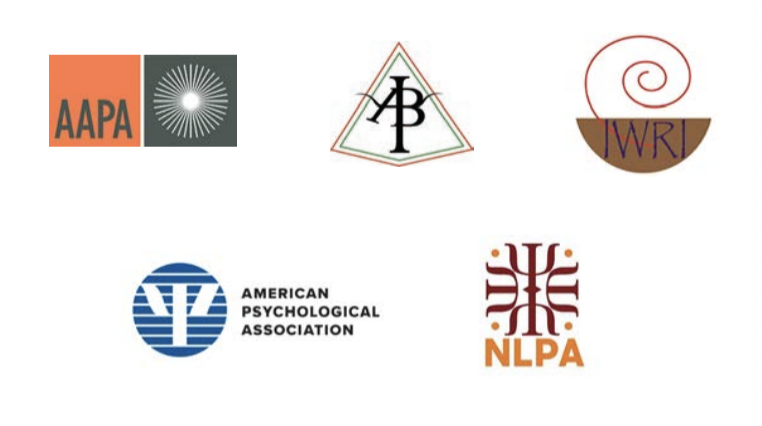
A Brighter Path Forward
The new administration has an opportunity to make historic investments in affordable housing, high skills job training, and resources for families with children. The Build Back Better agenda address systemic racial inequality and lead us toward a more equitable recovery for all -- workers, families, and communities.

The National Urban League's Priorities in Building Back Better
Words from our Subject Matter Experts
- Applied Methods to Improve Data and Health Equity
- Exposing the Toll of COVID-19 on “Hidden” Asian American Populations: Recommendations for Data and Policy Action
- Exposing the Toll of COVID-19 on “Hidden” NHPI Populations: Recommendations for Data and Policy Action
- Measuring Wellbeing and Gender Gaps for Black and Latinx Mothers in Los Angeles, CA. During COVID-19
- Rapid Research on the COVID-19 Pandemic and Racial and Ethnic Inequities in Wealth, Labor Force Participation, Occupations and Virus Risk, and Unequal Benefits from Education
- Understanding the Initial Educational Impacts of COVID-19 on Communities of Color
- Understanding Disparate Racial Experiences During Covid and Driving Positive Attitudes towards Vaccination


